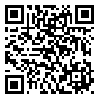Volume 13, Issue 1 (April 2006)
J Birjand Univ Med Sci. 2006, 13(1): 9-15 |
Back to browse issues page
Download citation:
BibTeX | RIS | EndNote | Medlars | ProCite | Reference Manager | RefWorks
Send citation to:



BibTeX | RIS | EndNote | Medlars | ProCite | Reference Manager | RefWorks
Send citation to:
Zareban I, Abbaszadeh M, Moodi M, Mehrjoo Fard H, Ghaffari H. Evaluating a health- education program in order to reduce infection to Pediculus Humanus Capitis among female elementary students. Journals of Birjand University of Medical Sciences 2006; 13 (1) :9-15
URL: http://journal.bums.ac.ir/article-1-57-en.html
URL: http://journal.bums.ac.ir/article-1-57-en.html
1- Instructor, Department of Health Education, Faculty of Public Health, Zabol University of Medical Sciences. Zabol, Iran. , zareban@yahoo.com
2- Instructor, Department of Health Education, Faculty of Public Health, Zabol University of Medical Sciences. Zabol, Iran
3- Instructor, Department of Health Education, Faculty of Paramedicine, Birjand University of Medical Sciences. Birjand, Iran
4- Instructor, Birjand University of Medical Sciences. Birjand, Iran
5- Instructor, Department of Anatomy, Faculty of Medicine, Zabol University of Medical Sciences. Zabol, Iran
2- Instructor, Department of Health Education, Faculty of Public Health, Zabol University of Medical Sciences. Zabol, Iran
3- Instructor, Department of Health Education, Faculty of Paramedicine, Birjand University of Medical Sciences. Birjand, Iran
4- Instructor, Birjand University of Medical Sciences. Birjand, Iran
5- Instructor, Department of Anatomy, Faculty of Medicine, Zabol University of Medical Sciences. Zabol, Iran
Abstract: (19407 Views)
Background and Aim: Pediculus Humanus Capitis has crucial role in transferring different diseases. Social hygiene and personal hygiene have particular role in prevention of this infection. The present study was aimed at planning and evaluating a hygiene- education program to reduce the extent of infection to Pediculus Humanus Capitis among female elementary students in Zabol during 2003.
Materials and Methods: The present study is a quasi- experimental one in which we had case and control subjects. Means of gathering data were questionnaires, recording files of overt behavior or check-lists, and screening to verify the existence of nymphs and adult pediculi. After determining the extent of infection to Pediculus Capitis among female elementary students in Zabol and holding pre-test on the basis of the obtained data, a hygiene program together with educational content was planned. Then, 175 fifth grade students infected with Pediculus Capitis were randomly divided into case – control groups. In the case group (87 students and their mothers) educational intervention was done. After 1.5 months post-test was carried
out. The obtained data was analysed through SPSS statistical soft-ware by statistical paired t-test, and Chi-Square.
Results: Among 1066 female elementary students under study, 313 cases (29.4%) were infected with Pediculus Capitis. After educational intervention the extent of infection in the case decreased to 17.6% but it did not change in the control. Besides, the statistical paired-t-test revealed a significant difference regarding the effect of hygiene educational program on knowledge, attitude, and hygienic behavior of the students and their mothers in the case group (P<0.001) but in the control group this difference was not significant. The statistical χ2 test showed that there was a significant relationship between infection to Pediculus Capitis and variables such as parents' level of education, school level, number of washing during the week, having a bath at home, monthly income, family population, and using shared articles- e.g veil, scarf, comb, and towel- (P<0.02, χ2= 84.8).
Conclusion: The obtained results showed that the hygiene educational program had a positive effect on the decrease of infection to Pediculus Capitis among the studied subjects.
Materials and Methods: The present study is a quasi- experimental one in which we had case and control subjects. Means of gathering data were questionnaires, recording files of overt behavior or check-lists, and screening to verify the existence of nymphs and adult pediculi. After determining the extent of infection to Pediculus Capitis among female elementary students in Zabol and holding pre-test on the basis of the obtained data, a hygiene program together with educational content was planned. Then, 175 fifth grade students infected with Pediculus Capitis were randomly divided into case – control groups. In the case group (87 students and their mothers) educational intervention was done. After 1.5 months post-test was carried
out. The obtained data was analysed through SPSS statistical soft-ware by statistical paired t-test, and Chi-Square.
Results: Among 1066 female elementary students under study, 313 cases (29.4%) were infected with Pediculus Capitis. After educational intervention the extent of infection in the case decreased to 17.6% but it did not change in the control. Besides, the statistical paired-t-test revealed a significant difference regarding the effect of hygiene educational program on knowledge, attitude, and hygienic behavior of the students and their mothers in the case group (P<0.001) but in the control group this difference was not significant. The statistical χ2 test showed that there was a significant relationship between infection to Pediculus Capitis and variables such as parents' level of education, school level, number of washing during the week, having a bath at home, monthly income, family population, and using shared articles- e.g veil, scarf, comb, and towel- (P<0.02, χ2= 84.8).
Conclusion: The obtained results showed that the hygiene educational program had a positive effect on the decrease of infection to Pediculus Capitis among the studied subjects.
Type of Study: Original Article |
Subject:
Health Education
Received: 2006/09/6 | Accepted: 2016/03/10 | ePublished: 2016/03/10
Received: 2006/09/6 | Accepted: 2016/03/10 | ePublished: 2016/03/10
Send email to the article author
| Rights and permissions | |
 |
This work is licensed under a Creative Commons Attribution-NonCommercial 4.0 International License. |





